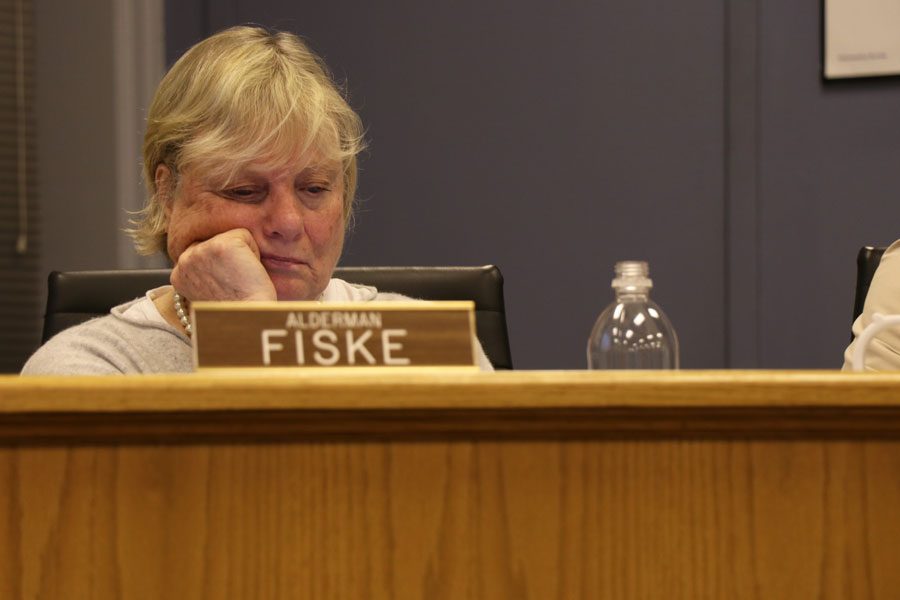Aldermen debate cannabis dispensary zoning regulations
Chris Vazquez/Daily Senior Staffer
Ald. Judy Fiske (1st). The alderman opposed an ordinance creating zoning codes for recreational cannabis dispensaries because the zoning would allow for dispensaries in close proximity to residential areas.
October 15, 2019
Ald. Judy Fiske (1st) challenged an ordinance Monday establishing rules for recreational dispensaries after it was disclosed that the ordinance lacked buffer zones for preschools and daycares.
Cannabis will become legal for private consumption in Illinois starting Jan. 1, and Evanston must set regulations for dispensaries before then. The new law legalizes the purchase of cannabis from authorized dispensaries and private usage for residents age 21 and older.
The ordinance, which was discussed during a Planning and Development Committee meeting, currently limits dispensary locations to a handful of commercial and business districts and prohibits dispensaries within 750 feet of public and private elementary, middle or high schools, as well as within 1,500 feet of other dispensaries.
Fiske pointed to a business district in a largely residential area straddling Noyes Street, calling the addition of a cannabis dispensary to the area “inappropriate” and comparing the dispensary to a bar or tattoo parlor.
“A lot of these little shopping districts have grown up based on the neighborhoods that surround them,” Fiske told The Daily. “A cannabis dispensary just wouldn’t be a good match.”
Community development director Johanna Leonard said Fiske’s proposal to add buffer zones to preschools and daycares would cause further headaches for city staff, as expanding the zoning restriction in that manner could render much of the city’s downtown area ineligible for a dispensary.
“Preschools and daycares are everywhere,” Leonard told The Daily.
Ald. Ann Rainey (8th) said creating more zoning restrictions would eliminate the already limited space for dispensaries.
She said the city’s current medicinal dispensary has not intruded upon the community.
“I would say 90 percent of people have no idea where our current medicinal dispensary is,” Rainey said.
Fiske ultimately voted with the committee to move the ordinance to City Council, where aldermen unanimously moved to introduce the legislation for action at a later meeting.
The city’s sole medicinal dispensary, Verilife, currently operates at 1804 Maple Ave. The franchise owner, PharmaCann, plans to obtain a recreational license for the same location and begin selling Jan. 1. According to city documents, this would give the provider exclusive domain over a large portion over the downtown area, per the 1,500-foot rule. Recreational dispensaries may operate between 10 a.m. and 8 p.m. under the ordinance.
During budget discussions, interim city manager Erika Storlie said the city allotted $250,000 in revenue for an up to 3 percent tax on recreational cannabis. However, she said the council has not yet discussed a tax rate for the substance.
Ald. Robin Rue Simmons (5th) said the city could use the tax revenue to fund reparations for black citizens, citing drug charges brought against black people. Rue Simmons has called for reparations and is a member of a subcommittee addressing wealth and opportunity gaps experienced by black residents in Evanston.
“Considering that the impact of over-policing and poor policing as it relates to marijuana use specifically,” Rue Simmons said. “I think that it’s an appropriate use of those funds.”
Email: [email protected]
Twitter: @maybejoshirvine












